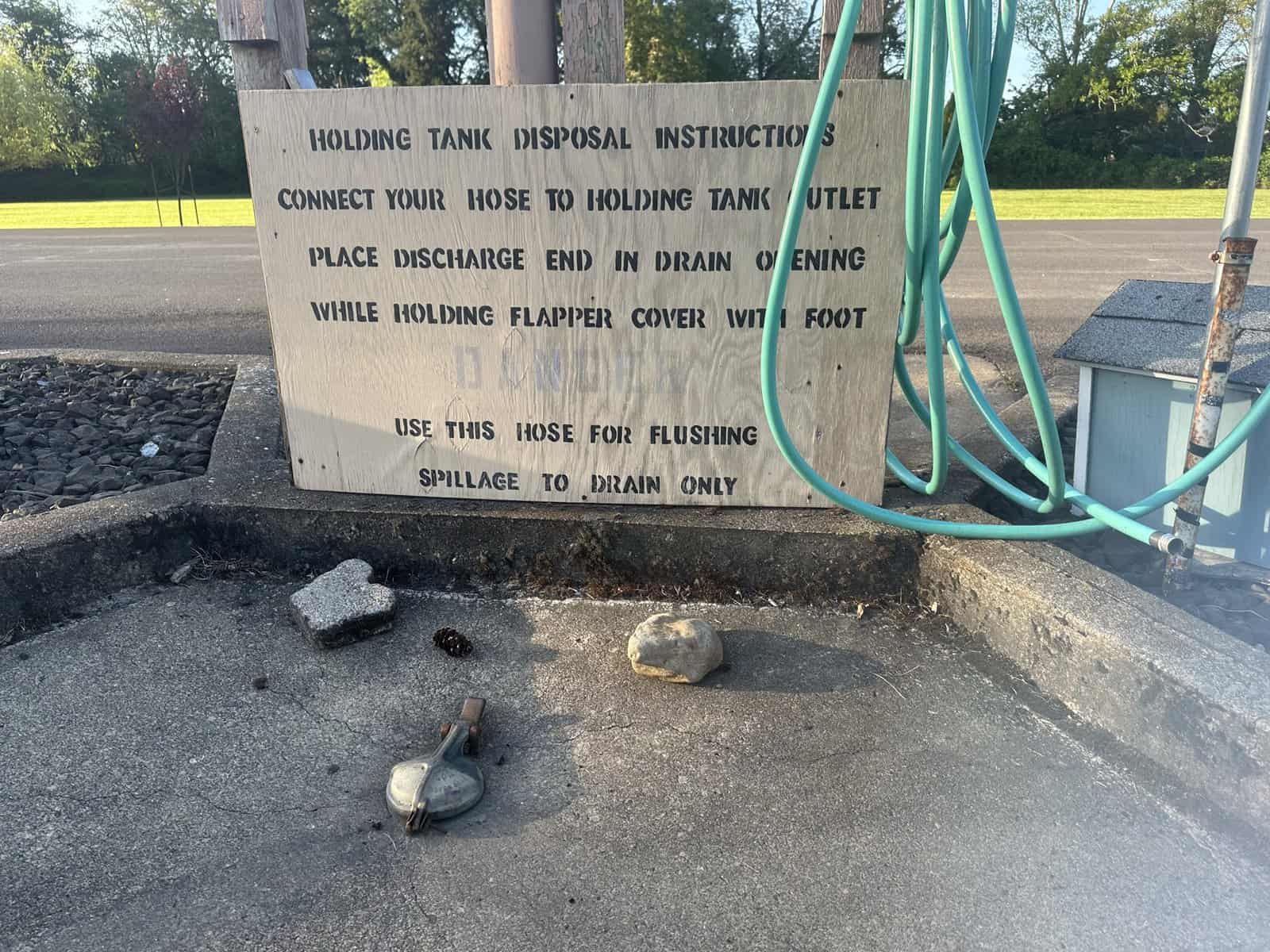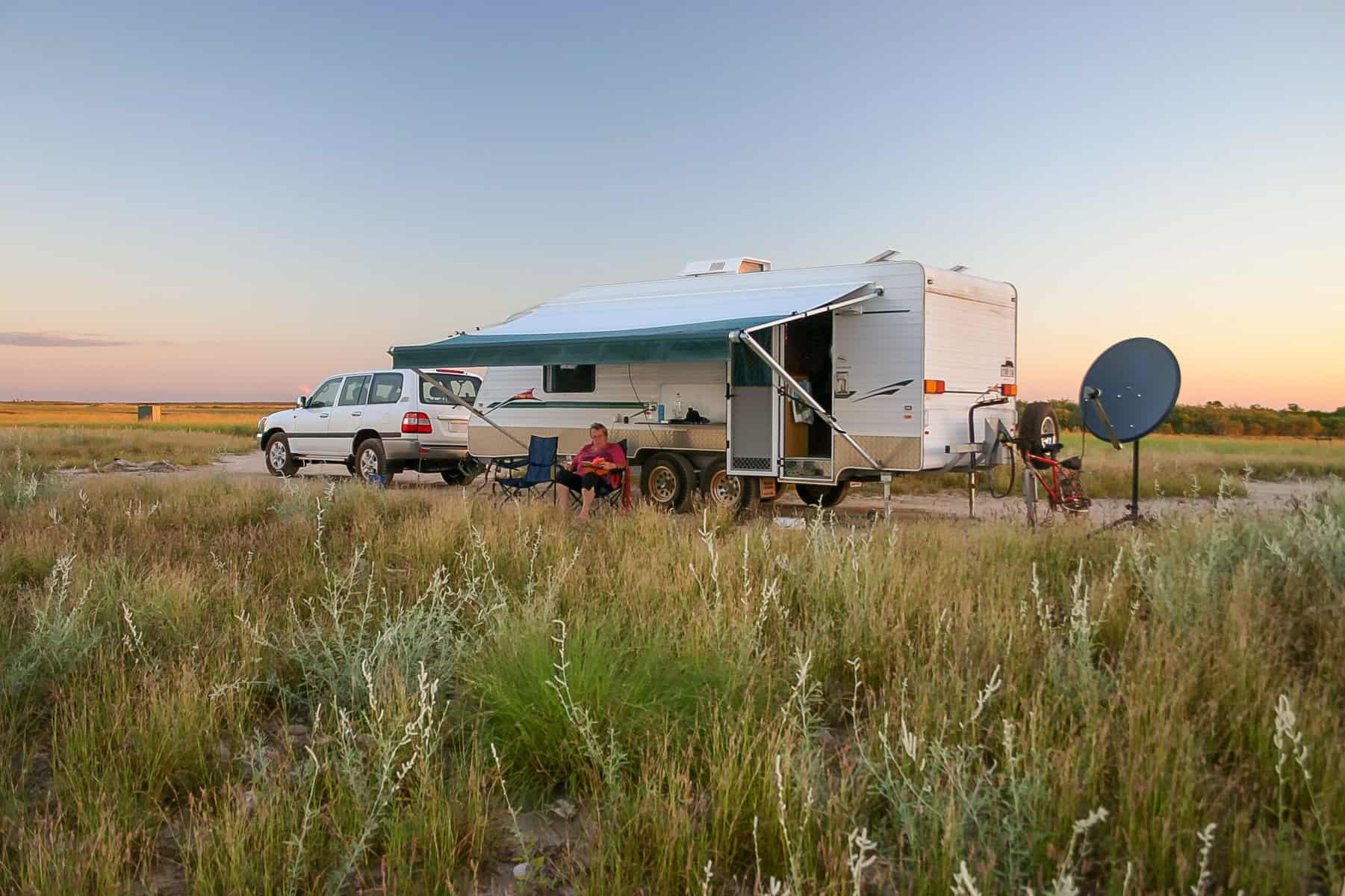If you’ve ever built a campfire, you might have been tempted to toss in the occasional piece of paper, plastic, or cardboard. Burning trash in a campfire is a fairly common practice, even today. But it’s one that needs to stop. All RVers (and tent campers) should abide by a “Leave No Trace” outdoor ethic. This means that if you bring trash into a campsite, you can make the effort to take it out, instead of burning your garbage or leaving it behind.
Garbage burned in a campfire can create fumes that campers inhale. The garbage may leave traces of heavy metals in the campfire ash. When the ash is scattered, as is common when cleaning up campfires, the ash may expose workers, animals, and plants to toxic metals. Garbage should not be burned in a campfire, but should be packed out and disposed of properly.
Mary Ann Davies, U.S. Forest Service Project Leader
Why You Need to Stop Burning Trash in a Campfire
In the old days of RVing, it was simple. Burning garbage at the campsite was something everyone did. But even so, most items just melted and created a big (and dangerous) mess that someone else had to clean up. We now understand that its best to avoid campfire trash burning. Here’s the top seven reasons why it needs to stop.
Burned campsite garbage creates toxic fumes
One of the biggest hazards of burning trash is the toxic cloud it produces. Wood smoke may cling to your clothes for a while, but for most people it’s not dangerous to be near in small quantities. However once you start burning synthetic materials, or chemically treated packaging, you’re polluting with hazardous materials.
Even seemingly-innocent items like cardboard can create unwanted, toxic fumes that harm the body. Some of the worst materials to burn include rubber, plastic, glass, aluminum cans/foil, Styrofoam, cardboard, cigarettes, and diapers. These all produce different toxic fumes, but a few really bad ones to watch out for are:
- Carbon monoxide
- Benzene
- Cadium
- Aluminum Oxide
- Mercury
- Lead
- Arsenic
- Cyanide
- Styrene
- Sulfur Dioxide
- Radioactive Elements
- And many more
I seriously doubt that anyone wants to breathe in a cocktail like that. Keep in mind that when you burn trash at your campsite, you’ll also be affecting the health of people around you. RVers who have respiratory problems are at higher risk of illness. Children and senior citizens are also endangered by this practice.
If you want to avoid breathing in these dangerous materials, only burn wood and paper products. These will burn cleanly and won’t leave behind any toxic residue. Be considerate; only throw safe fuel into the fire.
Burned garbage lowers the air quality
In addition to the airborne toxins, burning garbage also lowers the air quality around you. People often go camping to enjoy some fresh air and natural environments. The experience is ruined if there’s foul-smelling, smokey air in the campground.
Once the trash has been burned, getting rid of campfire smoke in your RV and on your clothes is tough. It usually sticks around for longer than wood smoke and might even create a film or residue on nearby items.
Campfire garbage burns increases the risk of wildfires
With rising temperatures and severe droughts in many parts of the country, RVers need to be particularly careful about campgire practices. When you burn loose pieces of trash, you set the stage for a dangerous situation.
Even if you think the item itself is harmless, remember that its shape and weight might cause it to fly away. A gust of wind can easily pick up burning pieces of paper or cardboard and fling them into dry plants. Wood is a safe bet because these pieces are usually large and heavy enough to stay where you put them.
Garbage burned in a campfire is hard to clean up
Another thing to consider is campfire cleanup. Trash complicates everything when it’s time to douse a fire or clean out the pit. Different materials burn in different ways. Paper and wood will usually disintegrate cleanly and leave safe ashes behind.
On the other hand, plastic usually bubbles, warps, and melts. It can form a stubborn lump in the middle of the firepit and cling to other items. Metal and glass items might shatter into dangerous shards.
Some items don’t burn well at all, so they just stick around until someone removes them. For instance, aluminum foil won’t catch on fire.
Cleaning up burned campfire garbage is lot of work in a dangerous setting. It stirs up the contaminated ashes when burnt garbage is cleaned up. This can spread to the rest of the campground, and everyone might even breathe some of it in.
It’s also bad camping etiquette that workers can do without. It might be convenient to throw camping trash into the fire, but someone always deals with the unpleasant and hazardous aftermath.
Campfire garbage harms the outdoors
Speaking of spreading ashes around the campground, let’s talk about the broader consequences of burning trash in a campfire. There are some immediate problems you might notice, but in many cases, this practice can also cause long-term damage.
We already mentioned the issue of air quality and toxic fumes, but there are other ways that garbage can pollute nature. First of all, trash doesn’t easily break down in nature. Plastic takes hundreds of years to degrade. It usually just breaks up into tiny pieces and stays in the soil.
Secondly, once the garbage mixes with ashes, it can easily be blown into rivers, lakes, and other bodies of water. In addition, if it gets wet from rain, the chemicals and toxins can seep into the ground and pollute the soil.
Once the soil has been ruined, this can affect the native plants and animals in the area. Food sources will die off or become unsafe due to the contaminants. You’ll only have to think about the burning trash for a second, but it can leave an impact on the area for months or years to come.
Animals get sickened from campfire garbage
Another side effect of burning garbage is the smell that attracts animals. Bears and other scavengers are often attracted by the smell of human food residue left on trash.
If you burn trash that has touched your food, you broadcast the smell of your meal. Animals will pick up on it, so they’re likely to be drawn to your campsite. Unless you want an unexpected visit from a campground bear, keep your fire burning as cleanly as possible.
Burning camping trash is usually against the rules
Many parks and campgrounds have specific rules about burning garbage. The general rule is that you’re responsible for disposing of your trash in a safe way. Garbage cans are provided at every campground, so take advantage of them! This will help you avoid bears and keep the area cleaner.
At the end of the day, you need to be a courteous and thoughtful RVer at any campground you visit. Follow the rules, pack your trash out, and clean up after yourself. Everyone will have a better experience if you put trash where it belongs: in the garbage can.




